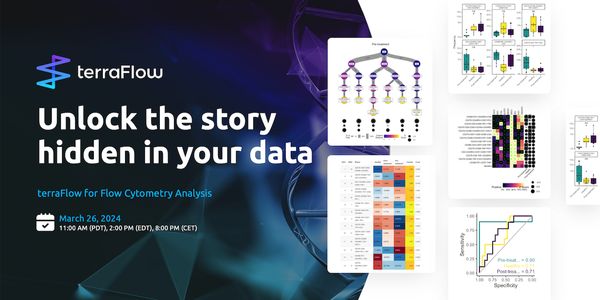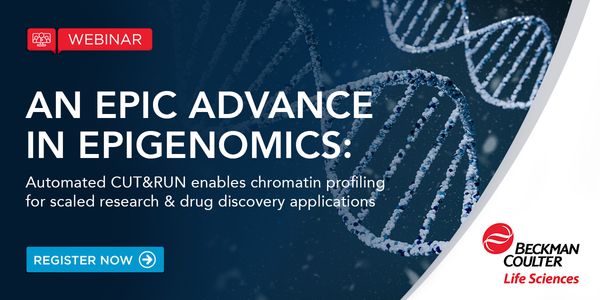CEO & Co-Founder, Isoplexis
BIOGRAPHY
Speaker
Abstract
IsoPlexis’ single-cell proteomics is being applied widely to generate uniquely predictive insight into various biomarker studies, in a way that cannot be captured by traditional bulk metrics. Tissue based analysis remains a challenge based on the need to extract functionally viable cells for downstream single-cell omic analysis.
Incorporating automated tissue disaggregation devices into immune monitoring tissue analysis, upstream of the IsoLight Automated Proteomics Hub has been demonstrated to improve the ability to analyze rare functional subsets of live cells, that would be undetectable with other methods. This unlocks further areas to expand on a number of omic studies already being done on IsoPlexis’ systems, in areas like cancer immunology, infectious disease and vaccines, and inflammation and neurology.
IsoPlexis has revealed the presence of unique subsets of cells that are highly polyfunctional that uniquely predict correlates such as anti-tumor activity, immune persistence, protective immunity, and more. Recent data has revealed that more robust cells with higher polyfunctionality pave the way for a next generation integrated workflow for improved cell health and analytics for immune monitoring.
Learning objectives:
- Understand the application of single-cell proteomics to generate uniquely predictive insight into various biomarker studies
- Hear how automated tissue disaggregation improves the ability to analyze rare functional subsets of live cells
- Review a recent study highlighting the positive impact of cells with higher polyfunctionality on immune monitoring
You May Also Like
MAR 26, 2024 | 7:00 PM
C.E. CREDITS
The implementation of a preemptive pharmacogenomics (PGx) program in a hospital setting requires a multidisciplinary approach to ensure seamless integration of each stage of the process for...
Speaker:
Steven Melnick. Ph.D., M.D.
, Dr. David Mancuso, Pharm.D. CPh , MSPM
Sponsored By: Thermo Fisher Scientific
MAR 26, 2024 | 8:00 AM
C.E. CREDITS
The implementation of a preemptive pharmacogenomics (PGx) program in a hospital setting requires a multidisciplinary approach to ensure seamless integration of each stage of the process for...
Speaker:
Steven Melnick. Ph.D., M.D.
, Dr. David Mancuso, Pharm.D. CPh , MSPM
Sponsored By: Thermo Fisher Scientific
DEC 12, 2023 15:00 CET
C.E. CREDITS
The implementation of the new CE-In Vitro Diagnostics Regulation (IVDR) involves challenges faced by labs that are working within the diagnostic environment. The aim of this event is to get...
Speaker:
Dr. Bastiaan B.J. Tops
, Dr. Etienne Rouleau
, Dr. Javier Hernández Losa
, Dr. Maria Scatolini
, Jennifer Stobbs MRes.
Presented at: Precision Medicine in Oncology
OCT 24, 2023 | 8:00 AM
To bring your cutting-edge cell and gene therapies to the patients that need them as quickly as possible, you need access to the most knowledgeable scientists, innovative technologies, metho...
MAR 26, 2024 | 11:00 AM
Ever wonder what you’re missing in your data? The sheer complexity of today’s flow and mass cytometry datasets demands automated solutions. Machine learning plugins only provide...
OCT 24, 2023 | 10:00 AM
Dynamic changes in chromatin drive gene expression programs during cellular development and contribute to pathological changes underlying disease. To date, efforts to characterize chromatin...
Loading Comments...
Please update your information
Certificate of Attendance
Thank you for choosing Labroots. Please note that a Certificate of Attendance does NOT count towards Continuing Education Credits.
DOWNLOAD CERTIFICATE
DOWNLOAD CERTIFICATE
You must watch the entire webinar to receive your certificate of attendance.
You must attend the event before receiving your certificate of attendance.
You must register for the event first.
Certificate is no longer available for this event.
You must be logged in to retrieve your certificate.
Finish Registering
Attendees
-
APR 30, 2024Immuno-Oncology Virtual Event Series 2024
-
MAY 07, 20243rd International Biosecurity Virtual Symposium
-
SEP 03, 2024Microbiology Week Virtual Event Series 2024
- See More
-
APR 18, 2024
- See More












































